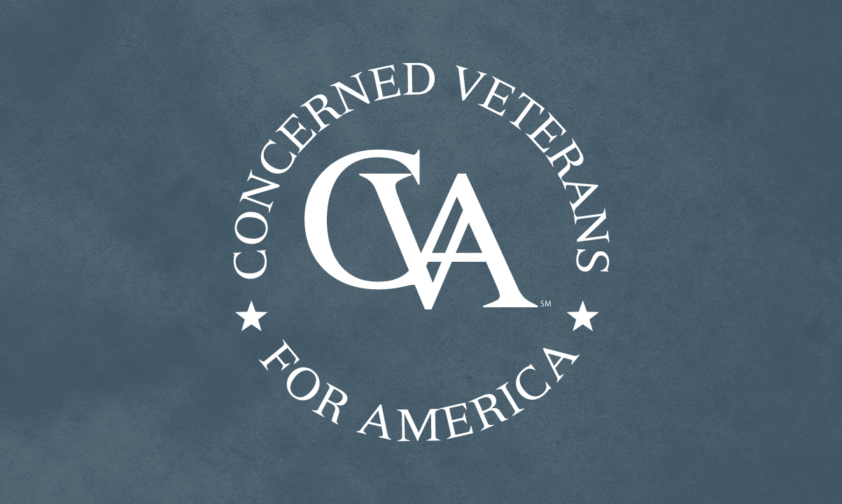
What is CVA working on in 2023? Here are our top priorities
At CVA, our mission is to defend the freedoms we and our families fought and sacrificed for. To accomplish that mission, we’ll spend this year focused on
- guaranteeing the care and services veterans were promised
- providing for a strong national defense through a better foreign policy
- securing America’s financial future.
Here are the top priorities CVA is working on in 2023.
Reforming veterans health care
The Department of Veterans Affairs has failed to fully implement or follow the VA MISSION Act law that empowers more veterans with greater access to care in their communities using their VA benefits.
To keep veterans in the VA system, the VA has used incorrect scheduling practices to manipulate wait times and steer veterans away from their community care options. In short, the VA is failing veterans in how it manages care.
We will continue working with lawmakers to protect and expand health care access for veterans, whether that care is delivered by the VA or by a community provider.
We’ll also encourage Congress to revive the Asset and Infrastructure Review Commission, a necessary tool for streamlining and modernizing VA facilities.
Modernizing the VA and veteran services
Transitioning out of the military can be a long and bureaucratic process. It’s littered with barriers that keep veterans from living healthy, successful lives.
Specifically, the disability benefits system is antiquated and rehabilitation for those with serious, service-connected injuries is an afterthought.
We are calling for Congress to establish an independent commission to review the disability benefits system and make recommendations for how that system can better serve veterans.
Rethinking foreign policy through reassessing alliances
U.S. alliances have been a main topic of conversation since Russia’s war in Ukraine started last year.
The U.S. should maintain relations and cooperate with our partners and allies, but that should be done while clearly defining where U.S. interests overlap with theirs and where they don’t. Keeping Americans and the country safe should be the first priority of U.S. foreign policy.
To that end, policymakers should avoid new permanent security commitments, such as admitting Ukraine or Georgia into NATO, as those commitments would increase the likelihood of American men and women getting pulled into a European war.
Policymakers should also take a more critical eye to open-ended aid deliveries to Ukraine, especially when wealthy, capable European nations aren’t providing the same support. While we support Ukraine’s cause, Europe has a much larger vested interest in assisting Ukraine against Russia and should be taking the lead on supplying aid. We should also be ensuring that aid deliveries don’t pose too great a risk of escalating the conflict to a direct NATO-Russia war, which would be disastrous for the US.
Withdrawing troops from Iraq and ending endless wars
This year, the Iraq War will turn 20. That is 20 years of resources, dollars, and lives lost in a war that’s been a foreign policy disaster from the beginning.
The U.S. still maintains a large military footprint in Iraq despite our troops having had no clearly achievable objective for years. Nevertheless, they are still subject to regular attack from Iranian-backed militias, who can more easily target our troops than otherwise because of their deployment. Troops are also stationed all over the Middle East and Horn of Africa, supporting open-ended missions that have little to no connection to vital U.S. interests. All the while, we put American women and men in unnecessary danger.
Our policymakers should start drawing down troops in Syria, Yemen, and Somalia, and fully withdraw troops from Iraq. It’s time for the endless wars to come to an end, and for us to reevaluate how many military resources we devote to the Middle East at the expense of greater priorities at home and abroad.
Repealing outdated AUMFs and taking back war powers responsibilities
Congress taking back responsibility over military engagements goes hand in hand with withdrawing from unnecessary military conflicts. Article 1 of the Constitution gives Congress the duty to authorize and oversee military action. But thanks to vague and outdated Authorizations for Use of Military Force, presidents and the Pentagon have been given leeway to conduct operations around the world without input from Congress. Members of Congress have neglected their responsibility to vote on matters of war and peace.
This year, we’ll continue urging Congress to repeal obsolete AUMFs and resume its role in overseeing war powers. If a threat comes to the United States, Congress can then vote on necessary military action, as it is intended to.
Controlling federal spending by realigning the defense budget
Federal spending has been out of control for years, with the federal debt now exceeding $31 trillion. This mounting debt puts our nation at risk of economic strain that would keep us from being able to defend ourselves against potential threats. Military leaders have said that the national debt is the greatest security threat we face.
Getting debt and spending under control can happen in all areas of government, but we’ll continue to focus on the unsustainable, wasteful spending at the Department of Defense and the VA.
DOD spending is higher than it has been since the peak of the Cold War, despite the U.S. being in a much more secure position. The war in Afghanistan is over, and defense priorities are shifting to counter rising challenges from China. It’s time for a defense budget that reflects those changes.
The DOD budget should be focused on putting our limited resources toward core national interests and invested in readiness.
More spending doesn’t equal more safety. Targeting sustainable spending to the right areas does.
Putting VA resources in the right places
Spending at the VA has skyrocketed in recent years, despite the total veteran population shrinking.
If the VA wants to be on a sustainable path that allows it to deliver care well, its budget needs to be reviewed.
Resources should be going to programs that are best meeting the needs of veterans, but the VA is long overdue for an assessment of its current services.
We’re asking lawmakers to take action that would streamline and modernize the VA to ensure the right resources are going to the right places so veterans have the care and services they need.
We have our work cut out for us in 2023, but we’re confident our grassroots army and policy champions can get these priorities across the finish line this year.
Read more about our 2023 policy priorities



